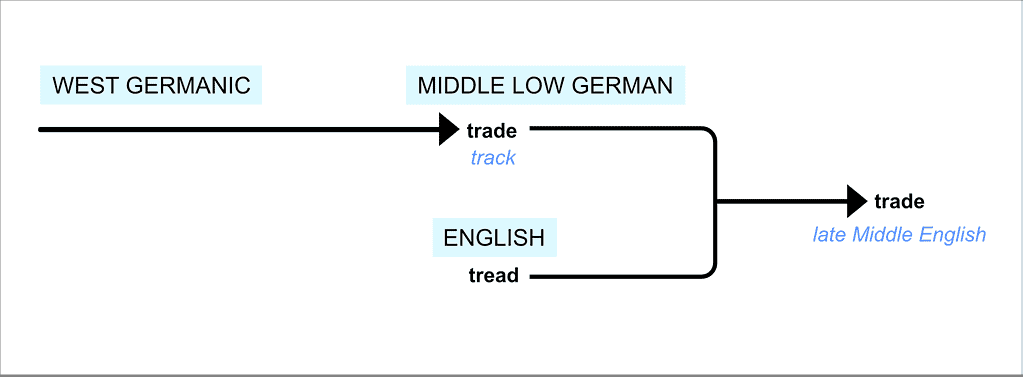What Buy or Sell means in the Bible
To buy or sell is fundamental to understanding Revelation 13. Learn in detail everything about buying and selling and ultimately avoiding the mark.
As part of the Mark of the Beast series, understanding “buy or sell” is essential to grasp the overall topic. This post aims to break down the understanding of buying and selling to enhance the reader's knowledge of the subject and bring clarity. With this knowledge, it will then be possible to break down the facets of Revelation 13 in detail and identify what to look for in the world to avoid falling into the snare. Revelation 14:9-11 in no uncertain terms, says anyone found with the mark will suffer the wrath of God, which is not somewhere anyone wants to be. The following Bible passage has sparked this discussion and is both provocative and mysterious, hiding the message behind layers of confusion. When these layers are peeled back, the evidence of God and the validity of the scriptures will become even more evident.
16. And he causeth all, both small and great, rich and poor, free and bond, to receive a mark in their right hand, or in their foreheads: 17. And that no man might buy or sell, save he that had the mark, or the name of the beast, or the number of his name. 18. Here is wisdom. Let him that hath understanding count the number of the beast: for it is the number of a man; and his number is Six hundred threescore and six.
Revelation 13:16-18
Popular "Buy or Sell" viewpoints
Buying or selling is likened to many mechanisms enabling purchasing of goods or services. Indeed, you can see why this would be the case since the words "buy or sell" imply something to do with money or transactions. Because of this, many ideas have surfaced throughout the years with this theme in mind.
Credit card usage
Barcode tagging
Microchip implants
etc
These ideas all share the common goal of controlling someone's money spending. While there is no denying that different ways of enabling access to financial resources are being developed, it does not justify these mechanisms being attributed as the mark of the beast since there is no evidence, only speculation. The phrase "buy or sell" originates in the Bible; therefore, the Bible must be central in justifying its statements.
The correct understanding of "Buy or Sell"
To buy or sell is not simply about controlling whether or how someone can spend their money, but the ability to acquire that money or income in the first place. Furthermore, it encapsulates the consumption of the mind and thoughts of an individual to centralise gain or acquisition as their primary focus and value in life.
This way of controlling someone's ability to generate income is the central theme in the Bible's meaning when using the term "buy or sell". To establish this point, several facets must be taken into consideration:
The original meaning of the word or phrase in Hebrew, Aramaic or Greek.
The etymology or, to say, the usage and meaning of the word at the time of writing.
Most importantly, the word's usage in the scriptures to leverage its intent and internal self-referencing dictionary.
Each of these points will be detailed to establish the matter, but for those who find evidence tedious, please feel free to skip to the conclusion and look over the evidence in small doses.
The original meanings of the words
The first point of call is to explore the meaning of the words from the Hebrew, Aramaic or Greek perspective. The two words under the microscope from Revelation 13:17 are Buy and Sell, and the breakdown follows.
Buy
The STRONGS reference for the word buy is G57, a Greek verb, ἀγοράζω transliterated as agorázō and pronounced ag-or-ad'-zo, with the meaning:
agorazo (ag-or-ad'-zo) v.
1. (properly) to go to market
2. (by implication) to purchase
3. (specially) to redeem
[from G58]KJV: buy, redeem Root(s): G58 The STRONGS reference to the root G58, the markets, a Greek noun, ἀγορά transliterated as agorá and pronounced ag-or-ah', with the meaning:
agora (ag-or-ah') n.
1. (properly) the town-square (as a place of public resort)
2. (by implication) a market or thoroughfare
[from ageiro, "to gather" (probably akin to G1453)]KJV: market(-place), street See also: G1453
The STRONGS reference to the root G1453, arise, he/she arose, to raise up, a Greek verb, ἐγείρω transliterated as egeírō and pronounced eg-i'-ro, with the meaning:
egeiro (eg-ei'-ro) v.
1. to waken
2. (literally) rouse from sleep, from sitting or lying, from disease, from death
3. (figuratively) rouse from obscurity, inactivity, ruins, nonexistence
{transitively or intransitively}
[probably akin to the base of G58 (through the idea of collecting one's faculties)]
KJV: awake, lift (up), raise (again, up), rear up, (a-)rise (again, up), stand, take upSee also: G58 To buy could be viewed in the light of going to the market or town square to purchase or redeem. To rise, stand or take up to purchase or shop at the markets or town square. Overall, it means the same as how it's used today.
Sell
The STRONGS reference for the word sell is G4453, a Greek verb, πωλέω transliterated as pōléō and pronounced po-leh'-o, with the meaning:
poleo (po-leh'-o) v.
1. to barter (as a pedlar), i.e. to sell
[probably ultimately from pelomai "to be busy, to trade"]KJV: sell, whatever is sold To sell is to barter or provide goods or services in exchange for something else. This meaning is the same as the usage today.
Examining the Etymology
Keeping the words Buy or Sell as a unit instead of breaking them apart forms the meaning of business or trade. Trade is more commonly used to indicate business or commerce but is also frequently used to represent occupation. Thus, this line of examination shows that business and occupation are synonyms. In addition, the primary form of occupation is business, trading goods or services, which is at the heart of all transactions. For example, one can manage their farm but eventually use the farm produce to barter or trade for other required goods.
In addition, the King James Version of the Bible, the source for most of the biblical references in this post, was completed in 1540 and published for general availability in 1611. These dates are essential to gauge the correct meaning of the word by what it meant when the writing was translated.
Trade
To trade is defined as "the action of buying and selling goods and services (n.)" or "buy and sell goods and services | exchange (something) for something else, typically as a commercial transaction (v.)". The etymology reveals the origins of the word trade meant:
Course, meaning the route of direction followed by something/someone
Way of life
Habitual practice of an occupation
Skilled handicraft
Sense of "one's habitual business" developed from the notion of "way, course, manner of life."
The etymology of trade is examined using several sources to establish its meaning when the KJV Bible was authored.
late Middle English (as a noun): from Middle Low German, literally ‘track’, of West Germanic origin; related to tread. Early senses included ‘course, way of life’, which gave rise in the 16th century to ‘habitual practice of an occupation’, ‘skilled handicraft’. The current verb senses date from the late 16th century. Reference.
EtymOnline
trade (n.) late 14c., "path, track, course of action," introduced by the Hanse merchants, from Middle Dutch or Middle Low German trade "track, course" (probably originally of a ship), cognate with Old English tredan (see tread (v.)). Sense of "one's habitual business" (1540s) developed from the notion of "way, course, manner of life" (mid-15c.); sense of "buying and selling, exchange of commodities" is from 1550s. Meaning "act of trading" is from 1829. Trade-name is from 1821; trade-route is from 1873; trade-war is from 1899. Trade union is attested from 1831. Trade wind (1640s) has nothing to do with commerce, but preserves the obsolete sense of "in a habitual or regular course." trade (v.) 1540s, "to tread a path," from trade (n.). Meaning "to occupy oneself (in something)" is recorded from c. 1600. Meaning "to barter" is by 1793. The U.S. sports team sense of "to exchange one player for another" is attested from 1899. Related: Traded; trading. To trade down is attested from 1942; trade up from 1959. Trade places "exchange situations" is from 1917. Trading post is recorded from 1796. Trading stamp, given by merchants and exchangeable for goods, is from 1897. Reference.
Scriptural Usage
Ultimately, no justification for anything scriptural can stand on its own unless scriptural evidence is provided. This understanding is both logical and critical since using an adulterated secular source will undoubtedly lead to the wrong conclusions. The following passages provide deep insight into how the scriptures use the term "buy or sell".
And the man that does any work on it shall die: whoever desecrates that day, whoever lies with (his) wife, or whoever says he will do something on it, that he will set out on a journey thereon in regard to any buying or selling: and whoever draws water thereon which he had not prepared for himself on the sixth day, and whoever takes up any burden to carry it out of his tent or out of his house shall die.
Jubilees 50:8
12. And Jesus went into the temple of God, and cast out all them that sold and bought in the temple, and overthrew the tables of the moneychangers, and the seats of them that sold doves, 13. And said unto them, It is written, My house shall be called the house of prayer; but ye have made it a den of thieves.
Matthew 21:12-13
To buy or sell is equated to trading for business or making a profit. This is the act that the commandments constitute as work, and the above passages highlight as "buying and selling" or "sold and bought". Further pieces of evidence to this effect can be found in these passages: 1 Maccabees 12:36, Luke 19:45, Luke 17:28, Mark 11:15, and 1 Maccabees 13:49. It is pretty clear what the usage of the phrase "buy or sell" means, but to cement this understanding, James lends his pen to the matter.
13. Go to now, ye that say, To day or to morrow we will go into such a city, and continue there a year, and buy and sell, and get gain: 14. Whereas ye know not what shall be on the morrow. For what is your life? It is even a vapour, that appeareth for a little time, and then vanisheth away.
James 4:13-14
James focuses on the obsession with profit and money in a life that passes very quickly; what then does that gain and the vanity it indulges bring in the end? In his focus, he clarifies the phrase's meaning and leaves no doubt about the common understanding throughout the scriptures. "Buy and/or sell" centres around trade or occupation.
The impact on the entire world
Daniels tells us about the fourth kingdom of iron (Daniel 2:36-45), which treads down the whole earth. This kingdom of iron comes after gold (Babylonian), silver (Persian), and bronze (Greek). Rome is the kingdom of iron, and the entire world still lives in the era of Rome, seen through the Latin language derivatives, the gregorian calendar, the papacy, and many more indicators.
Thus he said, The fourth beast shall be the fourth kingdom upon earth, which shall be diverse from all kingdoms, and shall devour the whole earth, and shall tread it down, and break it in pieces.
Daniel 7:23
We live in the stage of the world moving along a linear timeline that the Bible describes as iron mixed with clay. Mixing iron and clay is where the iron will not cleave or solidify since the clay prevents it. The meaning is, unlike the kingdoms before (Babylonians, Persians, Grecians and Romans), which had a centralised rule, a hegemony or a one-world order, this final stage of the world will not be ruled as such. Despite the non-singular head, the era will see more destruction that all those that came before.
Breaking down Tread
The STRONGS reference for the phrase "and shall tread it down" is H1759 an Aramaic verb, דּוּשׁ transliterated as dûwsh and pronounced doosh, with the meaning:
duwsh (doosh) v.
1. to trample
[(Aramaic) corresponding to H1758]
KJV: tread down.
Root(s): H1758Exploring the root of H1758 will deepen our understanding of H1759. The STRONGS reference for the root H1758, a Hebrew verb stem, דּוּשׁ דּוֹשׁ דִּישׁ transliterated as dûwsh and pronounced doosh, with the meaning:
duwsh (doosh) (or dowsh {dosh} or diysh {deesh};) v.
1. to trample or thresh
[a primitive root]KJV: break, tear, thresh, tread out (down), at grass (Jeremiah 50:11 See also: H1877)
Because ye were glad, because ye rejoiced, O ye destroyers of mine heritage, because ye are grown fat as the heifer at grass, and bellow as bulls;
Jeremiah 50:11
The phrase "at grass" uses two STRONGS references, H1758 & H1877. STRONGS H1758 is defined above. STRONGS H1877 is a Hebrew masculine noun, דֶּשֶׁא transliterated as desheʼ and pronounced deh'-sheh, with the meaning:
deshe' (deh'-sheh) n-m.
1. a sprout
2. by analogy, grass
[from H1876]KJV: (tender) grass, green, (tender)herb. Root(s): H1876 The reference to the root H1876 can be found in Genesis 1:11 & Joel 2:22, meaning to "bring forth" or "to spring". A Hebrew verb stem, דָּשָׁא, transliteration as dâshâʼ and pronounced as daw-shaw', with the meaning:
dasha (daw-shaw') v.
1. to sprout
[a primitive root]KJV: bring forth, spring.
Understanding Tread
Treading by the definition of the original word is the same as trampling down. To thresh, beat down as done with wheat on the threshing floor. The cows flatten the grazing fields, removing all the grass, metaphorically trampling it down by removing everything. Treading is often thought of in the context of war and destruction, but a more appropriate view is to examine the catalyst for wars. Wars are fought for the retention or gain of territory. Gaining or retaining territory is profit; thus, the more destructive element is the motivation behind fighting the war, which is gain. Consequently, this motivation treads/tramples down the earth because it fuels all evil actions towards the end for gain, disregarding negative consequences as income trumps all.
Conclusion
As a nail sticketh fast between the joinings of the stones; so doth sin stick close between buying and selling.
Ecclesiasticus 27:2
Trade—commerce, the fundamental act for bartering goods and services, is at the heart of what "buy or sell" means. The love of money or the equivalent drives evil within this world.
For the love of money is the root of all evil: which while some coveted after, they have erred from the faith, and pierced themselves through with many sorrows.
1 Timothy 6:10
Every measure is based on profit and loss or money generation. The fundamental of economics worldwide, including those of nations, is gross domestic product (GDP), which measures the size and health of a country's economy over time. There are advertisements everywhere; there is always a deal on offer, and there is always a new product, device, app, fashion or lingo that somehow is monetised. This obsession with money is the main thought that occupies the minds of the masses, and with this driver, the world is trampled and trodden down. Every reward is money, and every action is driven by greed and only considers the compensation received, not the consequences. Fulfilment only comes from seeking out the source—God, but the world has decided that satisfaction comes from money and material possessions. This goal is taught from birth and embedded within every fibre of children of this world. The system parading around the world distracts, devours, coerces, forces, and steals your time and energy to prevent you from seeking God.
24. The wisdom of a learned man cometh by opportunity of leisure: and he that hath little business shall become wise. 25. How can he get wisdom that holdeth the plough, and that glorieth in the goad, that driveth oxen, and is occupied in their labours, and whose talk is of bullocks? 26. He giveth his mind to make furrows; and is diligent to give the kine fodder. 27. So every carpenter and workmaster, that laboureth night and day: and they that cut and grave seals, and are diligent to make great variety, and give themselves to counterfeit imagery, and watch to finish a work: 28. The smith also sitting by the anvil, and considering the iron work, the vapour of the fire wasteth his flesh, and he fighteth with the heat of the furnace: the noise of the hammer and the anvil is ever in his ears, and his eyes look still upon the pattern of the thing that he maketh; he setteth his mind to finish his work, and watcheth to polish it perfectly: 29. So doth the potter sitting at his work, and turning the wheel about with his feet, who is alway carefully set at his work, and maketh all his work by number; 30. He fashioneth the clay with his arm, and boweth down his strength before his feet; he applieth himself to lead it over; and he is diligent to make clean the furnace: 31. All these trust to their hands: and every one is wise in his work. 32. Without these cannot a city be inhabited: and they shall not dwell where they will, nor go up and down: 33. They shall not be sought for in publick counsel, nor sit high in the congregation: they shall not sit on the judges’ seat, nor understand the sentence of judgment: they cannot declare justice and judgment; and they shall not be found where parables are spoken. 34. But they will maintain the state of the world, and all their desire is in the work of their craft.
Ecclesiasticus 38:24-34
Although a city cannot function without its labourers, no one obtains wisdom if they spend all their time and thoughts on their labour. The only way to find God is to seek him as we do when working. There must be time dedicated to him, equivalent and in abundance to that which is dedicated to trade, jobs, professions and careers.
1. My son, if thou wilt receive my words, and hide my commandments with thee; 2. So that thou incline thine ear unto wisdom, and apply thine heart to understanding; 3. Yea, if thou criest after knowledge, and liftest up thy voice for understanding; 4. If thou seekest her as silver, and searchest for her as for hid treasures; 5. Then shalt thou understand the fear of the LORD, and find the knowledge of God. 6. For the LORD giveth wisdom: out of his mouth cometh knowledge and understanding. 7. He layeth up sound wisdom for the righteous: he is a buckler to them that walk uprightly. 8. He keepeth the paths of judgment, and preserveth the way of his saints. 9. Then shalt thou understand righteousness, and judgment, and equity; yea, every good path.
Proverbs 2:1-9
The earth is trodden down, not because of war or famine, but because of "buying and selling"—trade and the greed for gain intertwined with this activity. There seem to be soft and caring words everywhere to help the poor and the disaffected, to improve your health or to reduce your weight, and countless other schemes, but they are laced to create industries for profit. By not choosing this kingdom on earth and its practices, Revelation reveals that you will not be able to "buy or sell". The world hates God, whose reward system is money or gain for its servant. If you do not serve the world, they will forcefully remove access to gain from you to coerce you back into their clutches. Without the ability to buy or sell—trade as per the definition of the word as of the 16th century, those who do not choose the mark of the beast will struggle to plot the course of their life and live in any semblance of success in this world. The entire kingdom will be against them. This is what God is showing in the scriptures, that you will suffer in this life but will be rewarded in the next (John 16:33). They have turned the world into a den of thieves whose only obsession is to buy and sell at all costs using fraudulent means (Amos 8:4-7), and those who choose not to be part of their kingdom will be treated as fodder to be abused, exploited, cheated, persecuted and even killed.








